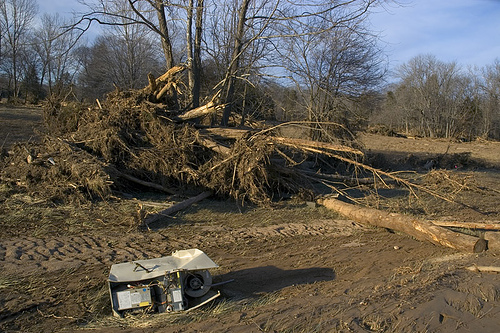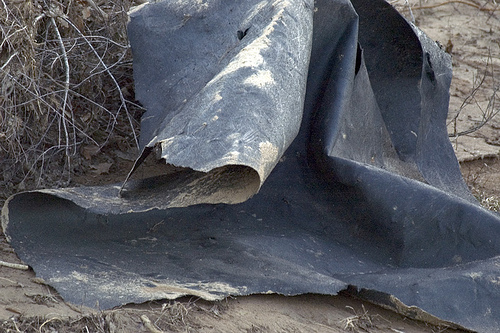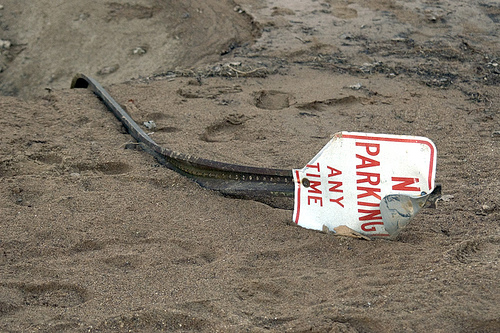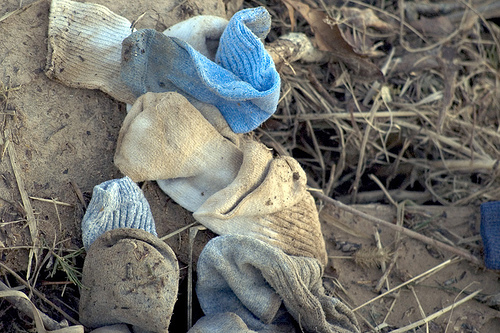Recovered from the Wayback Machine.
Since making predictions is the thing to do this time of year, I’m also going to indulge. However, rather than predict what others do, I’m going to take a look at predicting what I’m going to do. I figure I have the same odds at being found correct a year from now.
Prediction #10: I won’t be attending any conferences in 2006.
I was initially disappointed that the SxSW panel on women and visibility fell through, but now I’m just as happy as not. I was looking forward to meeting people, but how much time could we spend together when we’re pushed and pulled about by several hundred of us crowded into one place together? It seems to me that these meet and greets end up being more a photo op and a way of getting funding then to genuinely share some quiet time with friends met online.
I would like to meet many of you, but I’d rather meet you either as you pass through St. Louis, or I pass through your community.
As for the topic, what could be covered in an hour with four people talking, half of who disagreed? We would barely get through the “Hi, I am…” before the session was over. If we have an argument to make, we already have a platform from which to make known our views; one that doesn’t require we travel or that we be invited. If we have to meet in person before our writing is given credibility then I’ll repeat what I said once, long ago: this environment is a lie.
So in 2006, I can predict that I won’t be appearing as a speaker in a conference.
Prediction #9: My ‘rating’ will continue to drop in Technorati
The nicest thing about losing popularity–as measured by links or subscriptions or whatever means–is that people will no longer lump me in with the A-listers.
Prediction #8: More photos and stories from and about Zoë
Okay, this is a cheap prediction. I have to have one sure thing on the list.
Prediction #7: The number of women in the computer science field will continue to drop in 2006, but I won’t care
The first part of this prediction probably won’t surprise folks, but the second part might. This statement has to do with the epiphany I recently had about women in tech that I was saving for SxSW. Since I won’t be attending SxSW, I’ll be writing about it, instead. Be still your beating hearts.
Prediction #6: I’m going to have more fun with my weblog in 2006 than I did in 2005
I’ve been ambivalent about this weblog in 2005, and it shows. I had two choices at the end of this year: quit, or do things differently. I’ve decided to do things differently, at least for now. We’ll see what happens.
Prediction #5: I’m not going to write about…
The hot topic of the moment, what the tech A-listers are addressing, the tech A-listers, and so on. I don’t know about anyone else, but I bore myself.
Nothing I have said in the last six months in this regard is ‘fresh’. Nothing is new. If the only reason you read me is to get some kind of visceral thrill of watching me confront people, then you might as well as unsubscribe from my weblog right now.
There is nothing to be gained by spending time responding to webloggers who play games. These are the people who say something outrageous, not because they believe it, but because it generates juice. I can get behind outrageousness; I can’t get behind the obvious manipulation.
Earlier I said I want to do something different with the weblog in 2006. I want to have fun. I want to write for the joy of it. I want this weblog to be useful, even if the only useful thing I accomplish with it is help one person with a bit of code; or cheer another with a photo from a hike.
I don’t want to play the games anymore. Which leads to…
Prediction #4: All of you will unsubscribe from this weblog
I can say this because I’m asking you to. I’m asking you to unsubscribe from this weblog. I’m asking you to go into Bloglines and Newsgator and whatever other subscription feed aggregator you use and unsubscribe me.
Then, if you find over time that you miss what I write–the long essays, the histories, fanciful tales, opinions, the writing, the tech, the photos, whatever–add the subscription back. If you’re not interested in all of my writing, subscribe to just those topics that interest you.
I’m asking you not to take me for granted. I promise you, in return, that I won’t take you for granted, either. Let’s all start fresh next year.
Prediction #3: I’ll finally get to Alaska
Dave Winer once mentioned he’d donate 100.00 if I wanted to travel somewhere to take photos. Well, I won’t hold Dave to his promise, but I am planning a trip next year. A road trip.
I have been to every state in the union except North and South Carolina, Michigan, and Alaska. Late summer or early fall in 2006, I want to take a road trip and visit the states unvisited–including driving to Alaska. Along the way, I’d like to quietly stop by and visit folks I’ve met through weblogging through the years.
My hope is to travel down to Florida and then up along the Atlantic states, over to Vermont, through to Michigan, zig zag over to see my Mom in Idaho and then on to Washington, Canada, and Alaska. When I come back, I then might travel down the Pacific rim states, or I may just traverse the Rockies, cross down south and then home.
It’s important to have dreams. This is mine.
Prediction #2: I’ll publish a book in 2006
Though the Wikipedia folk equate tech book writing with authoring toaster manuals, my hope is to publish at least one new book on technology this year. In the last few months, I’ve rediscovered my joy in technology; hopefully this can translate to a joy in writing about technology.
Prediction #1: I make no promises
Take me, or leave me, but don’t assume you know all about me. Outside of work commitments, I make no promises for 2006. It’s a new year: anything goes.
Happy New Year, my friends.















